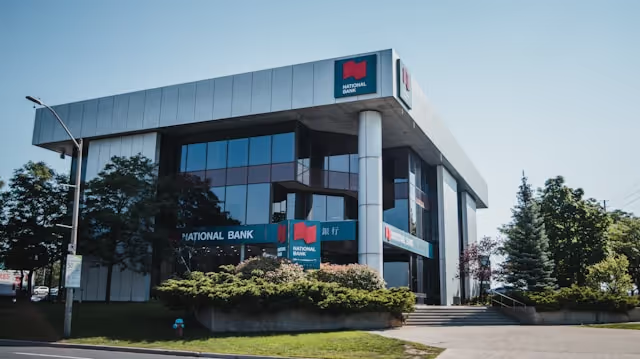
Blog
Unlocking the Secrets of Mortgage Cash Back
What is a mortgage cash back, and could it put thousands in your back pocket?
Imagine this: you're about to sign up for a mortgage, and the bank offers you a lump sum of cash just for choosing them. Sounds too good to be true, right? Well, it's not. Welcome to the world of mortgage cash back.
Mortgage cash back is an incentive that banks offer to entice new customers. It's an upfront cash payment made to you when you take out a new mortgage or refinance an existing one. This incentive is common across major New Zealand banks as they compete for your business. The payment could be for new lending, such as if you’re a first home buyer or property investor buying another property, or existing lending should you decide to switch your existing mortgage between banks.
But before you get too excited, let's delve into the details.
How Does Mortgage Cash Back Work?
After a mortgage is secured and drawn down, a bank will pay an agreed amount into the borrower's bank account. This sum is known as the 'cash back'.
After the cash back is paid, the homeowner can do whatever they want with it.
Note: banks sometimes don't call it a cash back but instead use terms like cash contribution, cash rewards, cash, cash incentive or first home bonus.
Mortgage Cash Back Size
The amount of cash back you receive typically depends on the size of your mortgage. Banks usually offer a percentage of the loan amount, usuually ranging from 0.10% to 1.00%. For example, on a $500,000 mortgage, this could mean anywhere from $500 to $5,000.
Note: during select periods, the market wide sum has been up to 1.25%, while not typical, this is a whopping $12,500 on a million dollar mortgage.
Alternatively, some banks offer fixed cash incentives, such as $3,000 to $7,500, regardless of the loan size. The exact amount can vary based on factors like your creditworthiness, loan-to-value ratio (LVR), and whether you're a first-time homebuyer or an investor.
What Determines the Amount of Cash Back?
Just like mortgage rates, offers fluctuate based on market conditions, the economy, and any other number of reasons.
Banks have a standard set of criteria that takes into consideration:
- The size of your deposit: the lower the LVR (Loan Value Ratio), the higher the cash back.
- The size of your loan: banks like to lend as much as possible, and cash back rates can be used to win customers over.
- Your affordability: the bank looks at a borrower's income and overall credit risk; the lower the risk, the higher the cash back.
- How you repay your loan: interest-only mortgages usually qualify for low cash back while principal and interest mortgages have higher cash back offers.
How Important Is a Mortgage Cash Back?
A good cash-back offer can be an overlooked and important factor when you obtain a mortgage. This is notable, especially as most people focus on the interest rate, rather than incentives such as a cash back offer. Let’s work through an example:
A sizeable cash back offer can make any minor differences between mortgage rates irrelevant. Let’s say a couple sought a mortgage for $500,000 over 30 years. The difference between a 6.60% and 6.65% one-year interest rate might seem like a lot, but if the couple could obtain a cash back offer of $4,000 the difference in mortgage rates is negligible. That’s because the difference in fortnightly repayments between the two rates would be just $4 per week, or $208 for the full fixed-rate period (one year). Best of all, after a set wait period is over, perhaps three-years, the time the couple agreed to stay with the bank to get the cash-back, the couple can seek-out another cash back offer with an entirely different bank!
In the example above, if the couple just focused on the interest rate alone, they might not realise the benefits of a good cash back deal. In plenty of other cases, seeking out an attractive cash back offer can make a big difference, for instance:
- First home buyers. After putting nearly everything they have into a deposit, first home buyers are usually financially stretched when they move into their first home. They’ll usually have a legal bill to pay for conveyancing the home, moving costs, furniture, household effects, certain appliances, perhaps minor repairs on the home they move into, and more.
- Existing homeowners. A homeowner with an existing mortgage may find it worth their while to see what else is on offer. Naturally, making any change would only take place when it makes sense to do so. The cost may be as little as some legal fees and time taken to complete some paperwork – which can usually be paid for by a portion of the cash back sum received.
- Property investors. A property investor with a large sum of total lending may be able to secure a sizeable cash back by shifting lenders. This could make quite a difference to the net cash flow of the investment property or properties. As per the comments above for existing homeowners, changing lenders would only take place when it makes good sense to do so, as there are a few more matters to consider with property investment loans.
Apart from covering the legal fees, this incentive provides you with a versatile financial benefit that can be used in several ways to enhance your experience as a homeowner. These might be a holiday away, small renovations, furniture purchases, a bigger vehicle to suit a growing family, or something entirely different.
Related material:
- How to prepare for a home auction
- Should you refinance your mortgage?
- Buy your first home
- How to repay your mortgage sooner, the steps
Is Mortgage Cash Back Worth It?
At first glance, a few thousand dollars might seem like a great deal. However, it's essential to consider the long-term implications.
One of the benefits of using a mortgage broker (“mortgage adviser”), including our lending team here at Become Wealth, is they can work out the overall financial benefit of cash backs and discounted rates versus any other costs, plus maximise the cash-back sum depending on what is on offer in the marketplace at any given time. For example:
- Deciding on the right loan, structure, and lender (bank) is a combination of many factors, and the cash back is just one part of that. It’ll pay to keep everything in mind when you’re obtaining a loan – focusing too much on the cash back (or interest rate) might disadvantage you in other areas.
- Cash backs require a borrower to stay with the lender for three-or-so years, otherwise the bank can claw it all or a percentage back off you (called a claw back). So, if your situation might change during that time, such as if you intend to sell the property, cash back might not be such a good idea. Some banks pro-rata the cash back. For example, if you received a $10,000 cash back from a bank with a four-year clawback term and switched after two years, you would still need to pay back half of the money. This assumes a pro-rata rate of 25% per year for four years.
- If you refinance within your cash back period, the bank will reclaim cash back paid to you. If you repay all your debt because you’ve sold your house, they are still likely to make you repay some or all your cash incentive. If, however, you only repay a portion and retain some of your lending with the bank, it’s unlikely they will ask you to repay the cash back.
- Note: the repayment of cash back is a different factor to early break fees, which are calculated based on the remaining term of your fixed interest rate term.
- Mortgage cash backs are currently common, but they’re not guaranteed and could easily be stopped. Take advantage of it while you can as it may not be there forever.
- If you’ve got a small mortgage, the mortgage cash back offer will also be small.
As always, before signing any agreement, make sure you clearly understand the repayment terms and conditions.
Alternatives to Mortgage Cash Back
If you're not keen on the idea of a cash back mortgage, there are other options to explore:
- Lower Interest Rates: Some banks may offer lower interest rates without a cash back incentive. Over the life of the loan, this could save you more money than a one-time cash payment.
- Waived Fees: Certain banks might waive application or valuation fees, which can add up to significant savings.
- Flexible Loan Terms: Look for lenders that offer flexible repayment options or the ability to make extra repayments without penalties.
The Bottom Line: Mortgage Cash Back
To see if a mortgage cash back might put thousands in your back pocket, it’d be our pleasure to help you with a complementary mortgage review, or just a chat with one of our lending team. Even if you are still within your three years ‘claw back’ period. Pop us your details and we’ll be in touch within one working day to help determine whether this, or something else, might be a great fit for you.
You may also like:

Financial Mistakes to Avoid in Your 40s, 50s, 60s

When You Should Not Buy a Home in New Zealand


